What is People Also Ask?
People Also Ask (PAA) is a Google search results feature that provides searchers with questions and answers related to their search query. Google uses it to predict and address common questions visitors may have about the topic they searched for.
The People Also Ask rich results allow visitors to explore different areas of a topic without entering multiple search queries into Google. Google typically displays it at the top of the search results page. However, it may also appear lower down the page.
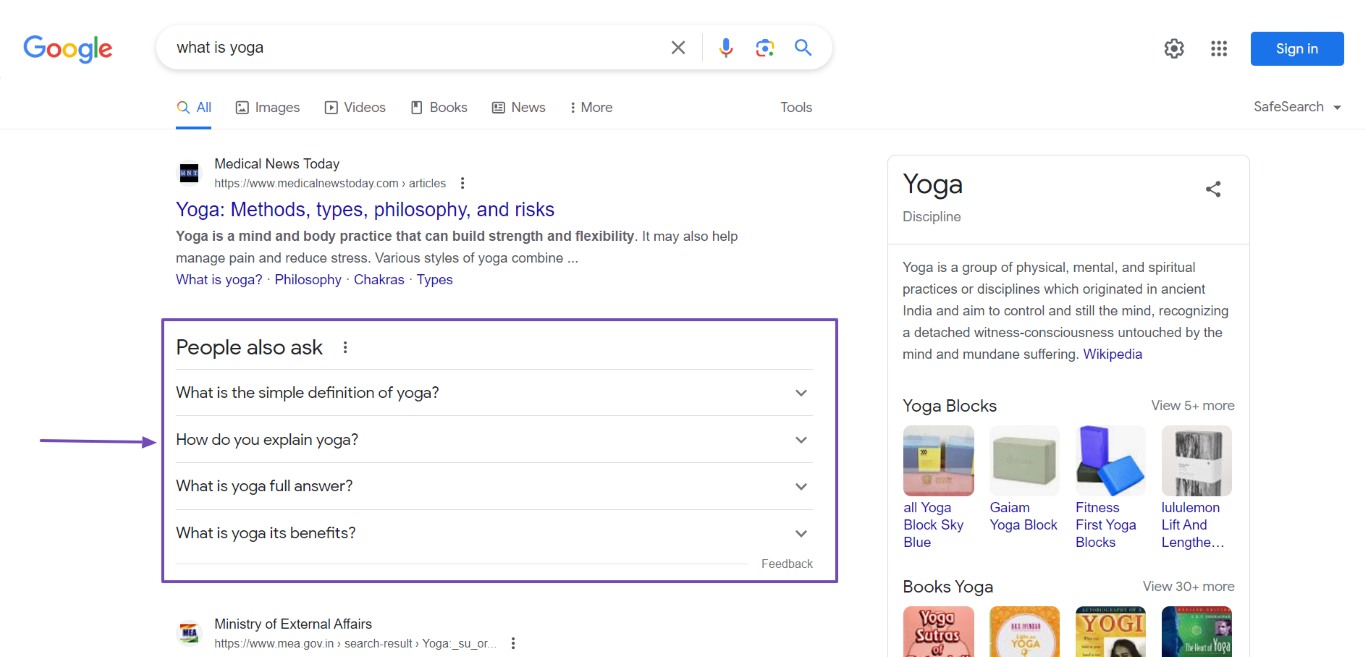
When clicked, each question expands to show a brief answer sourced from relevant webpages. The answer is typically text-based and includes the site name, URL, and clickable SEO title. Clicking the SEO title takes the visitor to the webpage from which the answer was sourced.
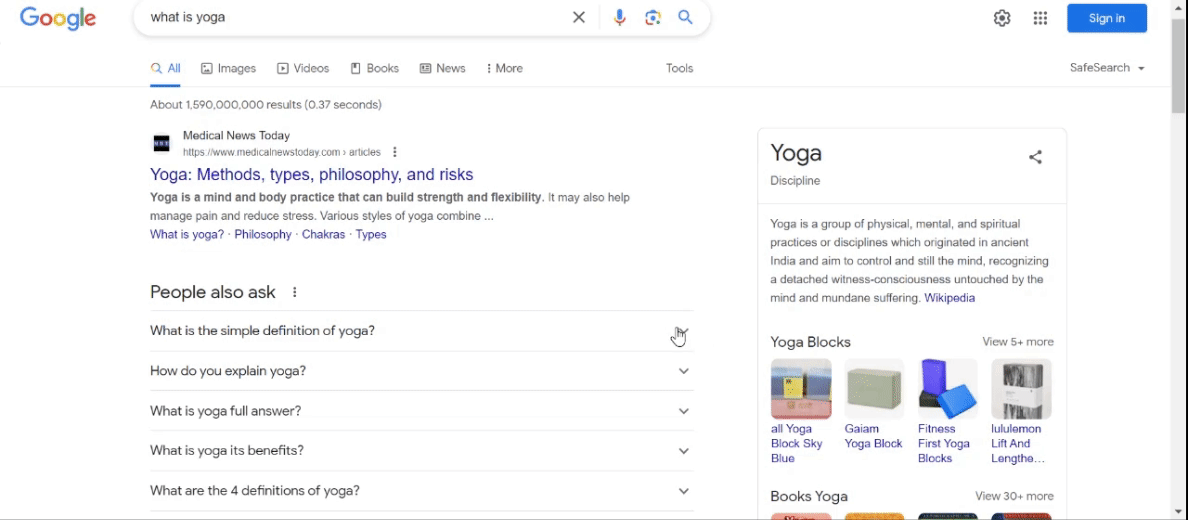
People Also Ask Answer Formats
The answers in the People Also Ask rich result can appear in multiple formats, including:
- Paragraphs
- Numbered list
- Bullet list
- Tables
- Videos
1 Paragraphs
The People Also Ask field can display answers in paragraph format. These paragraphs are sourced from the text on the webpage, though they may also be extracted from the frequently asked questions (FAQ) accordion. The paragraph may include an image.
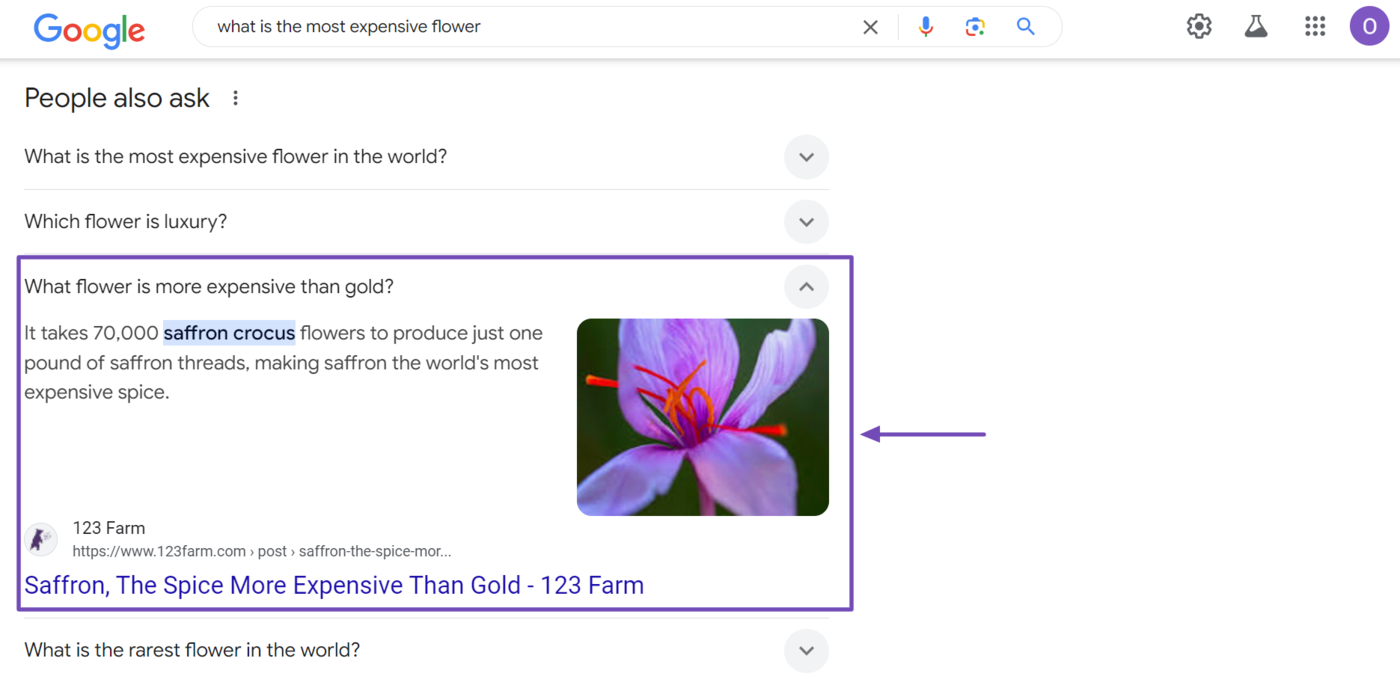
2 Numbered List
The People Also Ask field also displays answers in numbered list format. In this case, the answers are typically extracted from the webpage’s H2 or H3 headings.
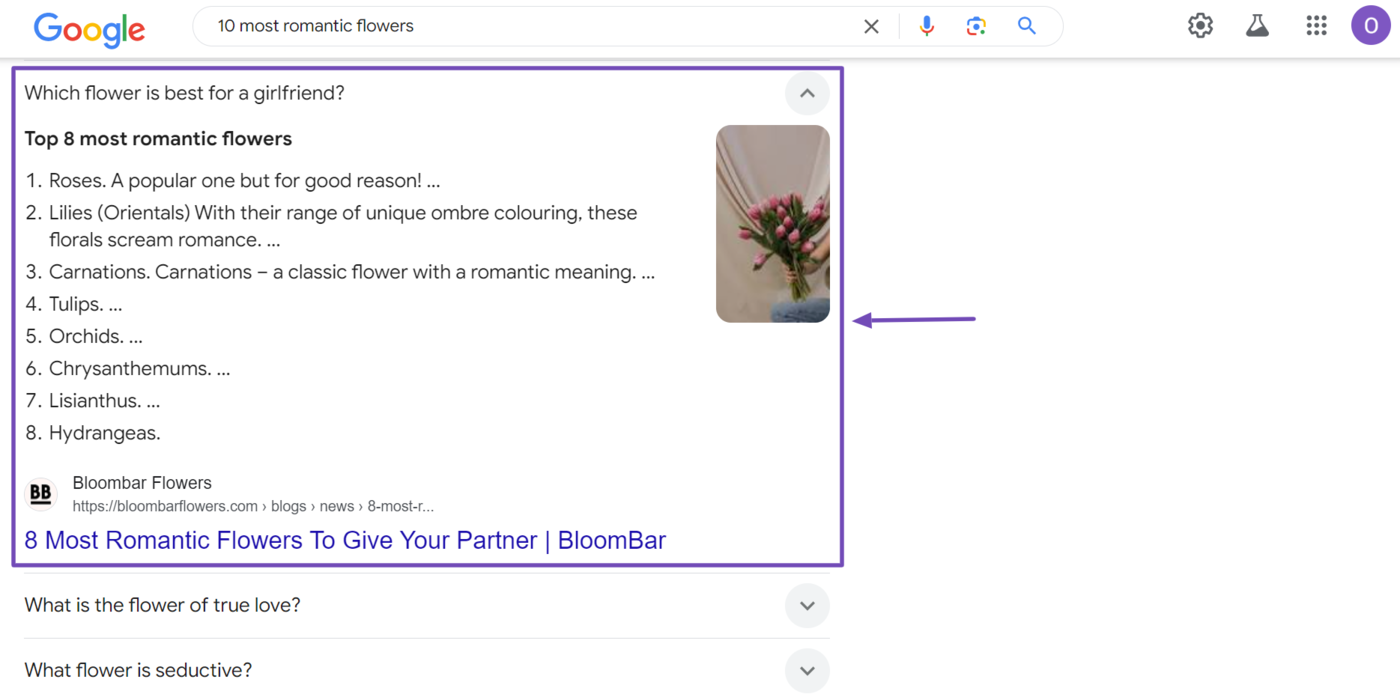
3 Bullet List
Answers in the People Also Ask rich result can also be displayed in bullet list format. In this case, the answer is extracted from bullet points, numbered lists, or subheadings on the webpage. The bullet list may include a relevant image.
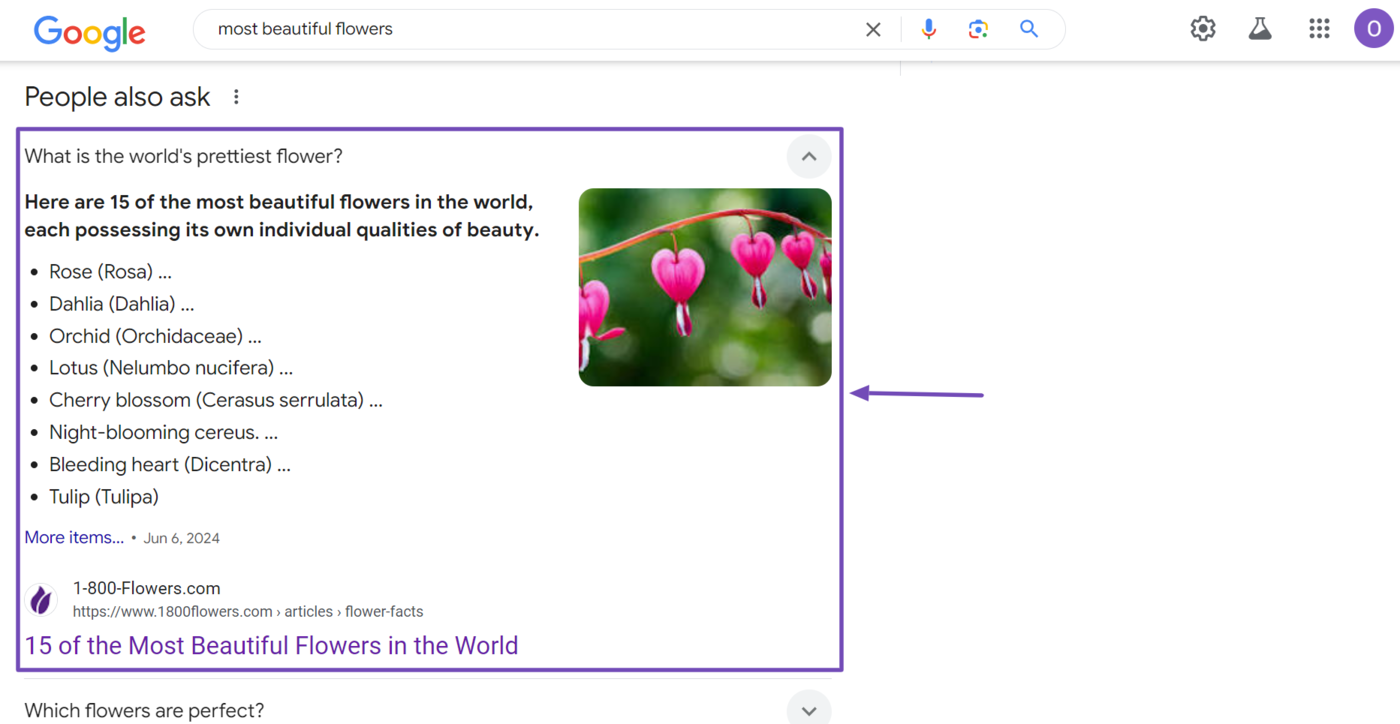
4 Tables
The table answers in the People Also Ask rich results are extracted from the tables on a webpage. You can rank for these results by including tables in your content. Google may then include them as answers to relevant People Also Ask questions.
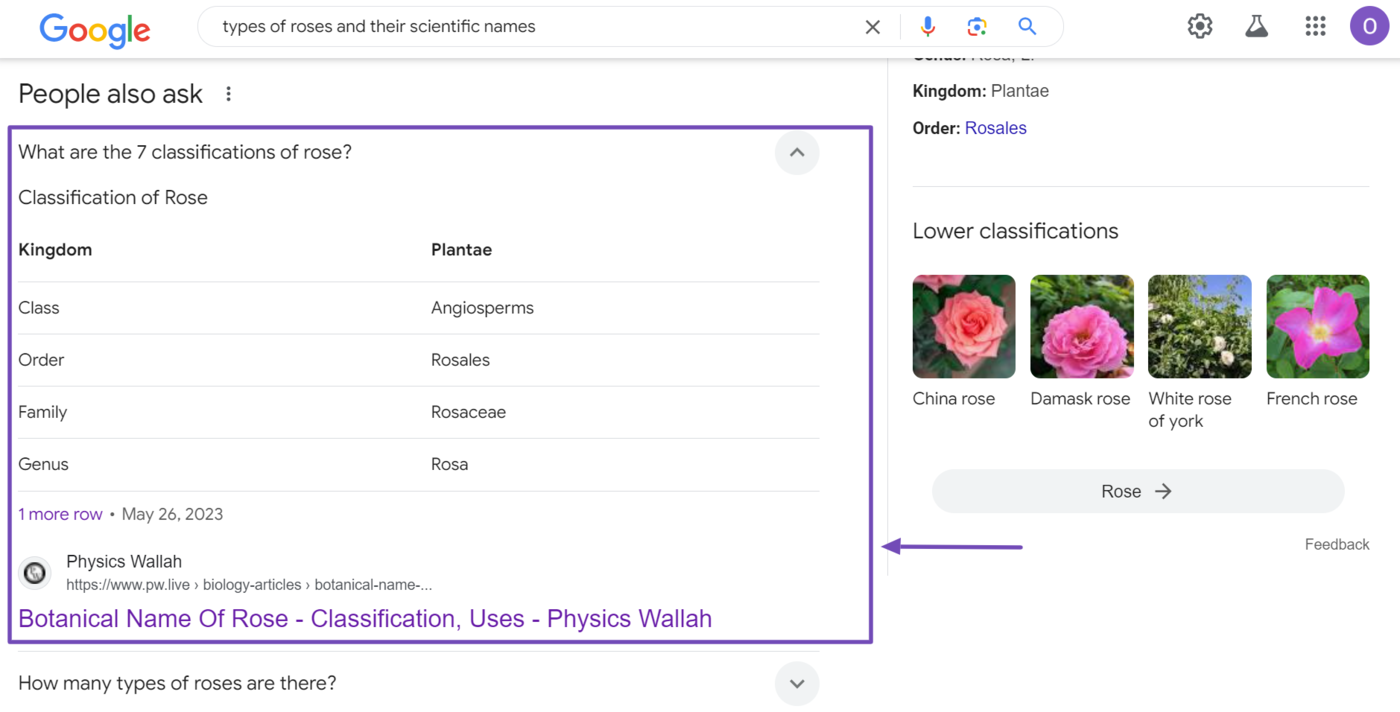
5 Videos
The People Also Ask rich results can display YouTube videos as answers. In this case, it will highlight the part of the video relevant to the question. It will also include a caption that answers the question.
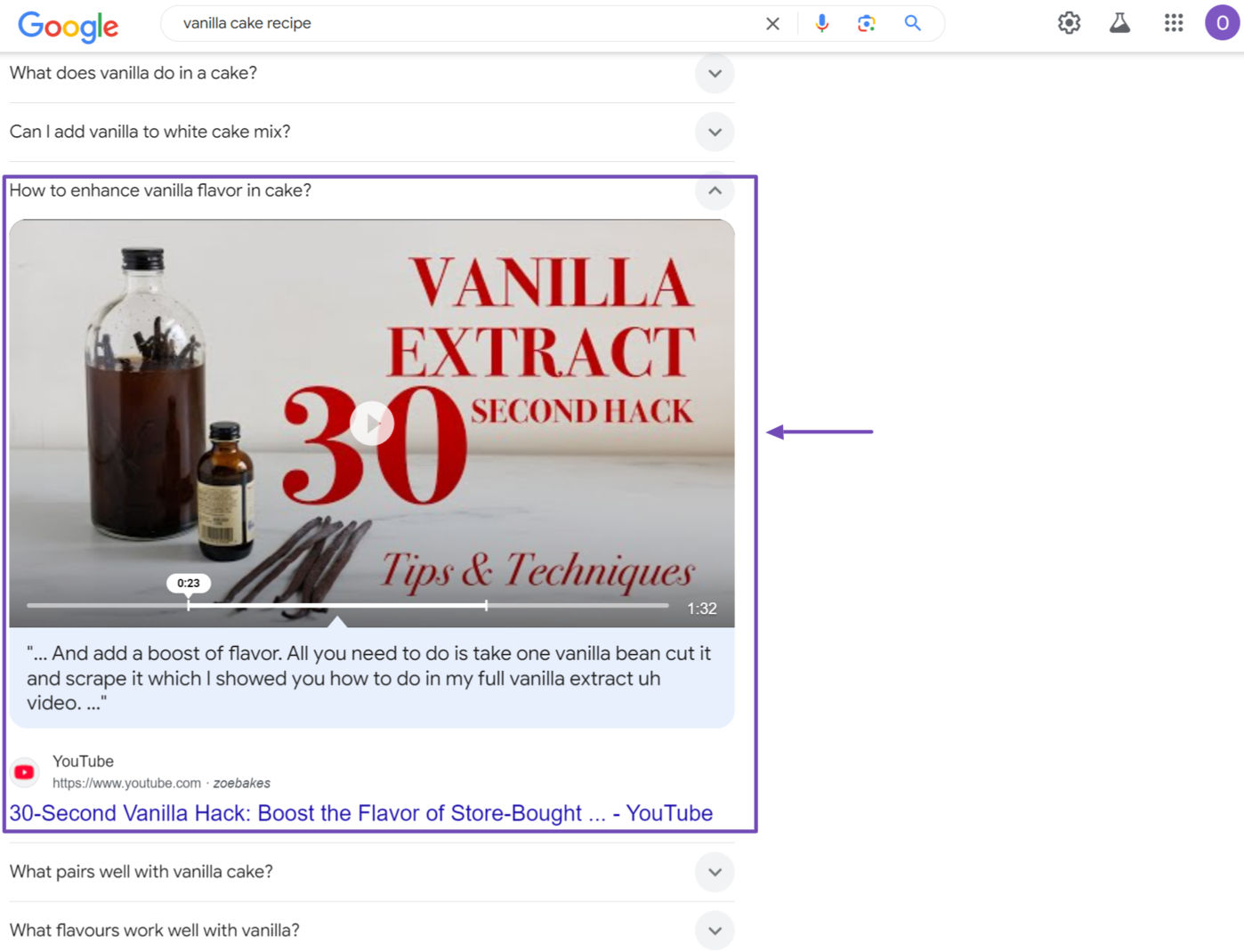
When you click on the video, the relevant section plays in a popup window on the search results page.
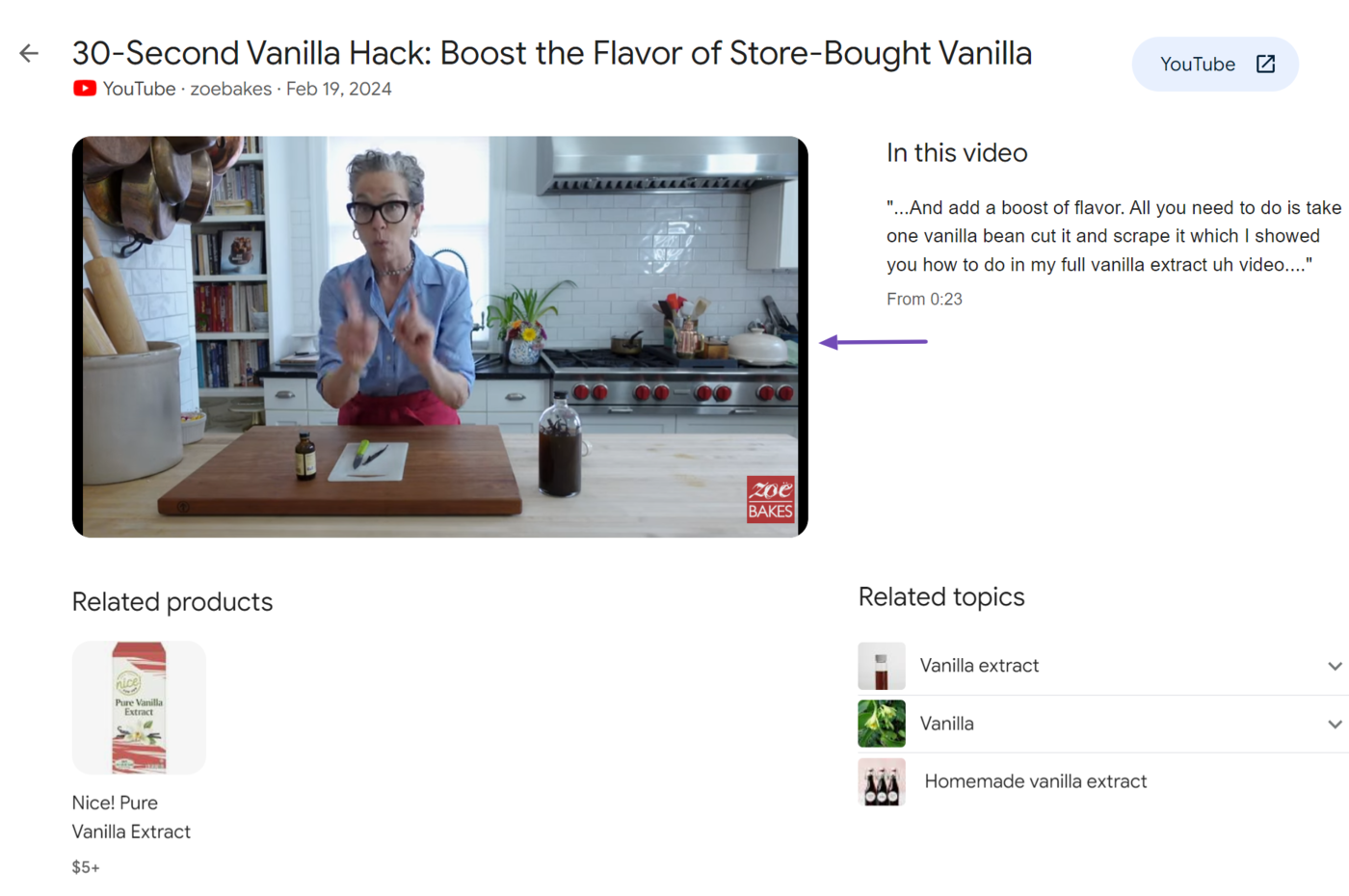
Importance of the People Also Ask Rich Result
The People Also Ask field allows visitors to discover additional information and explore related topics without performing multiple searches. This is helpful because it enables visitors to discover new areas of their topic of interest.
This improves the search experience for visitors as it allows them to discover and explore topics they would not have considered. It also saves their time as it presents them with multiple search queries and their answers without requiring them to open new search results pages.
The People Also Ask section benefits bloggers, too, as it increases their chances of appearing on the search results pages. This leads to more traffic to the site since the clickable SEO title goes directly to the blogger’s site.
From the SEO and content creation perspective, the People Also Ask field is helpful for Stichwort und content research. Bloggers use it to discover what their target audience is searching for. That way, they can create fresh content or optimize existing ones to answer those questions.
The People Also Ask rich result also benefits Google. For one, it keeps visitors on the search results page for longer. It also allows Google to better understand the context and intent of the search. Google could then use this data to improve the quality of the search results page.
How to Rank for People Also Ask Rich Results
Content that ranks for People Also Ask rich results usually ranks highly on search results pages. They are usually on Google’s page one and may even appear as featured snippets. However, bloggers have recommended a few extra tips to improve your chances of ranking for People Also Ask results.
1 Research People Also Ask Questions
The first step is to research the People Also Ask questions related to your target keywords. You may use SEO tools like Ahrefs and SEMrush to find relevant keywords and questions.
Optionally, you can manually search for your target keywords on Google and take note of the questions that appear in the People Also Ask section.
While researching, remember that People Also Ask questions are usually long-tail keywords. You should also pay attention to the format of their answers. Make sure to create your answer in the same format.
2 Create Concise and High-Quality Answers
Next, create clear and concise answers for the People Also Ask questions. People Also Ask questions that are usually highly explicit, leaving little doubt about what they mean. So, you should make sure that your answer directly answers the question.
The answers should also be informative, helpful, direct, and easy to understand. They must satisfy the visitor’s Suchabsicht. Google only displays between 40 and 60 characters in the People Also Ask answer field, so keep their word count within that limit.
3 Optimize Your Content
Optimize your content and headings to match the People Also Ask questions. Use paragraphs, bullet points, numbered lists, and tables where necessary. Remember you want your answer to match the format Google already uses for the current question.
For answers that appear in paragraph format, place the content high enough so that it is close to the heading. You should also include relevant featured images where necessary. The images should include descriptive alt text and file names.
When applicable, you may also include a frequently asked question (FAQ) accordion on the webpage. In this case, include an FAQ Schema-Markup as it helps Google understand the content better and improves your chances of appearing in the People Also Ask field.
In the case of numbered lists, include multiple H2 and H3 headings that answer the question in your content. In this case, the H1 heading or H2 will be optimized for the question.
As for bullet lists, the H2, H3, or bullet points will be used to generate the answer, as Google sometimes converts H2 and H3 subheadings into bullet points. Google may also display regular bullet points from your site.